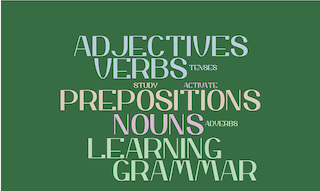A
Yesterday Karen and Jim played tennis.
They began at 10:00 and finished at 11:30.
So, at 10:30 they were playing tennis.
They were playing = they were in the middle of playing.
They had not finished playing.
Was / were -ing is the past continuous:
B
I was doing something = I was in the middle of doing something at a certain time.
The action or situation had already started before this time, but had not finished:
|
|
past | <- I started doing
|
|
| <-
| <- I was doing
| <-
|
|
past | <- I finished doing
|
|
|
|
|
now |
|
\|/
This time last year I was living in Brazil.
What were you doing at 10:00 last night?
I waved to Helen, but she wasn’t looking.
C
Compare the past continuous(I was doing) and simple past(I did):
Past continuous(in the middle of an action)
I was walking home when I met Dave.
Kate was watching television when we arrived.
Simple past(complete action)
I walked home after the party last night.
Kate watched television a lot when she was sick last year.
D
We often use the simple past and the past continuous together to say that something happened in the middle of something else:
Matt burned his hand while he was cooking dinner.
It was raining when I got up.
I saw you in the park yesterday. You were sitting on the grass and reading a book.
I hurt my back while I was working in the garden.
But we use the simple past to say that one thing happened after another:
I was walking downtown when I saw Dave. So I stopped, and we talked for a while.
Compare:
When Karen arrived, we were having dinner.
(= We had already started before she arrived)
When Karen arrived, we had dinner.
(= Karen arrived, and then we had dinner together)
E
Some verbs (for example, know and want) are not normally used in the continuous:
We were good friends. We know each other well. (not We were knowing)
I was having a good time at the party, but Chris wanted to go home. (not was wanting)



コメント